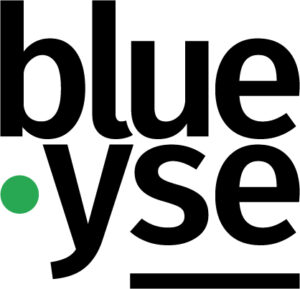
“I have a dream that my four little children will one day live in a nation where they will not be judged by the colour of their skin but by the content of their character”. Martin Luther King summed up the essence of this text. If we start considering arbitrary characteristics such as skin colour, gender or sexual orientation as decisive, we risk tokenism. We risk placing people in symbolic sample positions just to show how inclusive we are.
Symbolic employees often belong to a marginalized group, representing less than 15% of the workforce. This creates integration problems, due to three components: increased visibility, assimilation, and exclusion. As a result, these employees experience feelings of anxiety, higher performance pressure, and stress.
Many companies want to be more diverse but struggle with blind spots
Tokenism describes the policy and its implementation on hiring employees from marginalized groups, seen from an obligatory perspective. A classic example of tokenism is hiring a woman in a profession that is primarily known as “masculine”. Human rights activist and member of the African-American Civil Rights Movement Malcolm X responded to claims of increasing acceptance as follows in 1963: ”All you have gotten is tokenism – one or two Negroes in a job, or at a lunch counter, so the rest of you will be quiet.” Tokenism occurs in: ethnicity (skin colour), gender (male/female/non-binary), sexual orientation (LGBTQI+) and religion (Islam/Judaism/Christianity etc.).
Theory of racelessness: part of the solution?
According to this theory, when people become “colour-blind” and start to consider skin colour irrelevant, racism also disappears. We can also extend this theory. Here, we no longer judge people on their “membership” in a particular group, such as being female, Jewish or Asian, but only on their abilities or personality. Yet, this does not solve the problem either.
After all, there are many situations where a group characteristic does have relevance. Take health care, for example, some diseases and conditions are more common in people of African descent. Or take medicine, which can have a different impact on men than on women. Having a person with a disability in an architectural office can be a guarantee to pay attention to optimal accessibility in every design of a public building. In a symposium on the quality of elder care, it is best to have at least one older person as well. There is absolutely no tokenism in these cases.
Inclusive research and the pitfalls
Inclusive research is highly recommended by grant makers. Inclusive research looks at what teams of scientists and experts by experience really need to work together. This does not require tips and tricks or checklists. It’s about an inclusive mindset. You need to be motivated to meaningfully engage your target audience and make your research accessible to all. In addition, you can share inspiring examples. Issuing a guideline for inclusive research is not a good idea. After all, that sounds like following a checklist: “Look, this is how I’ve done enough ‘inclusive’ research.” It also implies that every type of research, every target group and every topic can be approached in the same way. And that is not the case.
It’s complex
The topics of identity, diversity, and inequality are enormously complex. They involve not only differences in gender, ethnicity, culture, religion, age, sexual orientation and/or identity, disabilities, and socioeconomic status, but also mentality, personality, and life experiences. Divisions and misunderstandings do not disappear by focusing on what distinguishes people from one another. Sometimes it is useful and necessary to take into account a specific group characteristic, but often it is more desirable, fair and respectful not to judge people by their group membership and to approach them as individuals.
Sources
Tokenisme: https://www.ensie.nl/twan-akkers/tokenisme
Zin en onzin van het hokjesdenken: https://www.humanistischverbond.be/blog/891/zin-en-onzin-van-het-hokjesdenken/
Sofie Sergeant: ‘Inclusief onderzoek is keihard werken’: https://www.vgn.nl/gepromoveerd/sofie-sergeant-inclusief-onderzoek-keihard-werken
Blog: inclusief onderzoek vraagt niet om een checklist: https://ivo.nl/inclusief-onderzoek-vraagt-niet-om-een-checklist/
